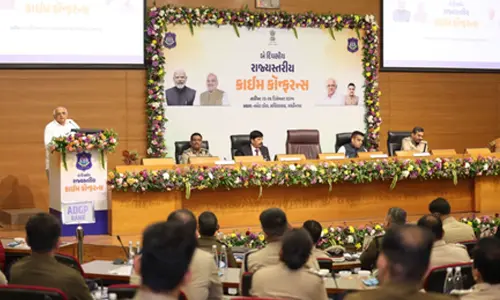Easing investment flow

India and Hong Kong this week signed a bilateral double taxation avoidance agreement (DTTA) to curb cases of tax evasion and promote bilateral flow of investment. The \'Agreement for the Avoidance of Fiscal Evasion\' will stimulate flow of investment, technology and personnel from India to Hong Kong Special Administrative Region and vice versa.
India and Hong Kong this week signed a bilateral double taxation avoidance agreement (DTTA) to curb cases of tax evasion and promote bilateral flow of investment. The 'Agreement for the Avoidance of Fiscal Evasion' will stimulate flow of investment, technology and personnel from India to Hong Kong Special Administrative Region and vice versa. It will also prevent double taxation and provide for exchange of information between the two countries. It will improve the transparency in tax matters and will help curb tax evasion and tax avoidance.
The DTAA will give protection against double taxation to over 1,500 Indian companies and businesses that have a presence in Hong Kong. The treaty would reduce the withholding tax rates that ban be applied to interest or royalties which would allow Hong Kong investors to make investment decisions with greater certainty and will reduce compliance costs for business.
The Indian tax landscape changed significantly in 2017 with the adoption of OECD/G20 base erosion profit shifting (BEPS) plan agenda and government circulars on the general anti-avoidance rule (GAAR). The country is also set to pitch for an international measure to tax digital companies that earn revenues from a large user base in the country. For that matter, India had signed the Multilateral Convention to Implement Tax Treaty Related Measures to Prevent Base Erosion and Profit Shifting (MLI) in June 2017 to close loopholes in tax treaties worldwide.
The OECD multilateral convention aims to crack down on tax evasion around the world, be it companies or investors, anybody trying to create a structure primarily to avoid or evade taxes. The world is fast moving towards rapid implementation of far-reaching reforms agreed under the BEPS project in more than 1,100 tax treaties worldwide, and radically transforming the way that tax treaties are modified.
This treaty signed now would help save signatories from the burden of re-negotiating these treaties bilaterally, the new convention will result in more certainty and predictability for businesses and a better functioning of international tax system for the benefit of citizens.
Tax evasion is one of the biggest problems for every country and this is where OECD/G20 BEPS project delivers solutions for governments to close the gaps in existing international rules that allow corporate profits to 'disappear' or be artificially shifted to low or no-tax environments, where companies have little or no economic activity.
The revenue losses from BEPS are nearly $ 240 billion annually or the equivalent of 4 to 10 per cent of global corporate income tax revenues. Governments worldwide have been patient with cross-border aggressive tax planning till now. The panel under BEPS - "Taskforce on Digital Taxation" - is expected to come up with a final report by 2020 to prepare a framework to tax digital companies.
The 2018-19 Budget proposed to suitably amend the Income Tax Act to tax technology companies. However, the existing DTAAs are not covered under the proposed change, requiring New Delhi to renegotiate the tax treaties. Taxing companies like Facebook, Google and Netflix will require renegotiation of the India-US tax treaty, which is a tedious task. MIL will automatically amend bilateral tax treaties.













